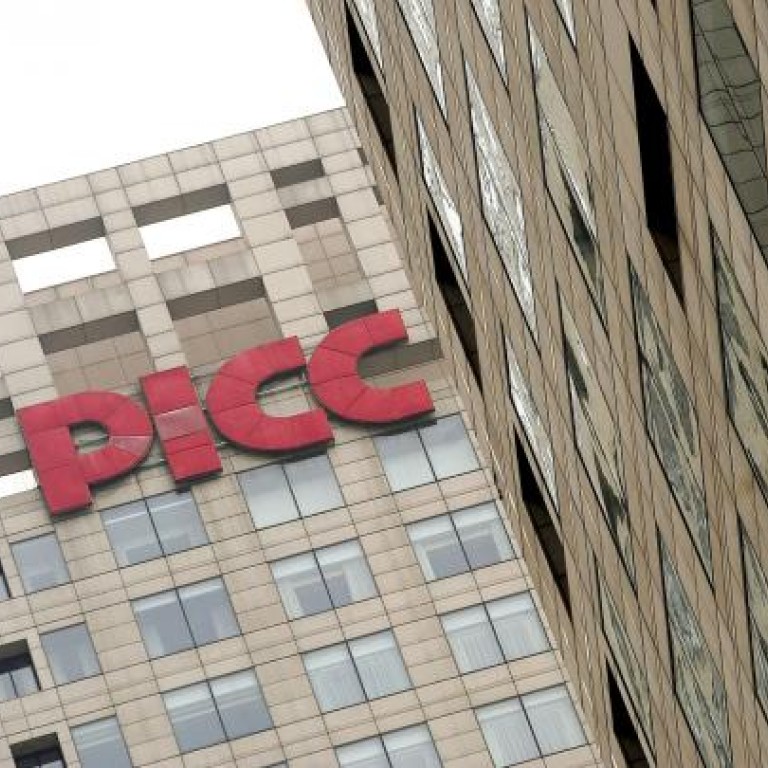
Era ends for mega mainland IPOs
Slowing mainland economy deters state firms from listing in the stock market, leading to shrinking profits and headcounts at banks
The initial public offering of People's Insurance Co (Group) of China last week was notable as Hong Kong's largest in two years. Bankers still do not anticipate it augurs a new round of big share sales by mainland firms.

"The days of US$20 billion Chinese IPOs are probably gone," said Fang Fang, JPMorgan Chase's chief executive in China.
In July 2010, Agricultural Bank of China raised US$22.1 billion in Hong Kong and Shanghai, the biggest offering in history.
The lack of mega deals comes amid a pronounced slump for offerings in Hong Kong of any size. The value of initial share sales has fallen to US$6.6 billion this year from US$58 billion in 2010, putting the city on pace for its worst year since at least 2003, when companies raised US$7.5 billion.
This year's total includes the US$3.1 billion offering of PICC Group, which required US$1.82 billion of pre-negotiated investments with American International Group and 16 other so-called cornerstone investors to complete the deal.
The downturn leaves investment banks grappling with a fundamental shift in their business. This year, they will derive about a third of revenue from arranging share sales, down from about 70 per cent in 2009 and 2010, according to estimates from executives at five firms who asked not to be named.
The shift may presage additional financial job cuts in the city, according to David Hui, a managing partner at executive search firm Asia Carbon.
"Investment banks are overstaffed for current deal flows and need to do lots of cost managing," Hui said.
Globally, mainland companies have raised US$20.1 billion in initial share sales this year, down 58 per cent from the same period last year and the lowest since 2008. The average size, excluding PICC Group, was US$95 million. In the second-biggest mainland offering this year after PICC Group's, Citic Heavy Industries raised US$507 million in Shanghai in June.
China Mobile kicked off the era of initial public offerings by state-owned enterprises when it raised US$3.9 billion in Hong Kong in October 1997. The mainland economy was then less than 20 per cent of its current size and the government was pushing state enterprises to go public to make them more competitive.
Since then, 58 state enterprises have completed share sales of at least US$1 billion, raising a combined US$183 billion.
The mainland was heading for its first year since 1999 without a billion-dollar share sale until the PICC offering was completed.
State enterprises account for 91 of the 100 biggest mainland companies, according to a September survey by the China Enterprise Confederation, a business association headed by retired government officials and top executives at some of the country's biggest state firms. Among them, 85 already have publicly traded units.
By contrast, private-sector mainland firms have completed just 13 billion-dollar deals worldwide since 1997, raising a total of US$20 billion.
The flood of deals by state enterprises slowed to a trickle in the past two years, as growth in the world's second-largest economy cooled for seven consecutive quarters. China Railway Materials, XCMG Construction Machinery and China Guangfa Bank are among government-controlled companies that have delayed share sale plans amid slack investor demand.
"In the past years we had many large equity capital market transactions coming from privatisation of big sectors in China, and we will still see some of those, but overall the number of big national candidates is running down," said William Barron, a partner at Davis Polk & Wardwell.
Amid the drought of large share offerings, fees for underwriting first-time share sales have fallen to the lowest since 2008, helping push some banks to quit the market altogether and others to slash jobs. The US$247 million of fees from such deals this year is down from an average US$775 million annually since 2006.
In total, banks have shrunk headcount at equity underwriting operations by at least 10 per cent this year, according to estimates by managing directors at three investment banks who asked not to be identified.

